[smart_track_player url=”https://soundcloud.com/nickonken/46-jeff-staple-on-taking-a-risk-and-starting-your-own-business” title=”How to Create a Street Culture Brand” artist=”Jeff Staple” image=”https://nionlife.com/wp-content/uploads/2015/05/46_JeffStaple_NIONradio_02.jpg” color=”#de4b9b” ]
“In order to live your dream, there’s a lot of sacrifice that has to be made.”
– Jeff Staple
Street culture has been around for almost 20 years, but it’s still evolving and growing. A combination of hip-hop, punk rock, and skate culture, the discipline is a perfect amalgamation of creative, independent lifestyles.
No one knows this better than Jeff Staple, the founder of Staple Pigeon, Staple Design, and Reed Space. Jeff is a front runner in New York City street culture, and today, I’ve got him on ONKEN RADIO to share his story with you all.
In this week’s episode, I talked with Jeff about how he went against the grain and risked disappointing his family to start his businesses. Jeff is a brutally smart businessman with an adventurous spirit, and that comes across in his wise words about work and life.
This is an episode you’re not going to want to miss, and who knows — it might inspire you to quit your day job. Let’s dive in.
Who Is Jeff Staple?
Jeff Staple is a creative visionary with work encompassing graphic design, street culture, fashion design, footwear design, and brand marketing. If you know anything about New York street culture, then you know that his brand, Staple Pigeon, is one of the original brands in streetwear.
In 1997, Jeff founded Staple Pigeon, the NY-based pioneering streetwear brand with the now-infamous “Pigeon” logo. He also founded the experiential lifestyle boutique, REED SPACE, which is located in the lower east side of Manhattan, in 2002. In addition to his own projects, Jeff has worked on creative projects from startup brands to Fortune 500 companies.
Jeff is also the host of HYPEBEAST’s popular podcast The Business of HYPE, and is one of the most prominent teachers on Skillshare. He is also a frequent moderator, lecturer, and keynote speaker at industry panels & conferences.
Despite his massive success in the art world, Jeff’s future didn’t always look so creative. Growing up in a strict Asian household, Jeff struggled with his parent’s expectations. While they wanted him to pursue the medical field, law, or finances, Jeff wanted to pursue the arts. In this interview, we talk about that struggle, what success really means, how his near-death experience changed his life, and what street culture is really about.
Jeff is an extremely hardworking creative, and I have massive respect for the person he is and his craft. I’m so excited to bring this interview to you, so let’s get started!
Pursuing Your Passion Despite Other’s Expectations
Jeff was born to Chinese immigrant parents who lived in New Jersey, just 45 minutes from New York City. From a young age, he had an obsession with the NYC energy, and always saw himself going to college at New York University:
“I just was infatuated with the energy since I was really, really young … [I] was just trying to get into as much trouble as possible in the streets of New York. … [In] middle school, I told my mom, ‘I’m going to New York University.’ [And she was like,] ‘There’s no way [you’re] going to a New York City-based school.”
– Jeff Staple
I have a lot of Asian friends with immigrant parents, and in many of those cases, there’s a struggle between the job the parents think is best for their child and what the child desires to become. I asked Jeff to share a little bit about what this struggle was like and what it taught him:
“I hate to sound like a pessimist, but in reality, you’re really not going to make them understand. … They didn’t have friends who [were] artists or designers, [and] there was no concept of making a living from being creative or following your dreams. … So trying to get them to understand that [was] very difficult. And eventually, you just have to decide to make a break.”
– Jeff Staple
After years of trying to make his parents understand, Jeff realized that he was hitting a wall and that it was time to “make a break” for it. When he decided to pursue art school, his parents assumed it was just his way to slack off and not do anything serious with his life. Jeff’s motives couldn’t be more different:
“I found art school way harder [than my previous education]. [I tried] to convince my parents of that — like, this is not a cop-out or an excuse to goof off. It’s really me pursuing my dreams. It was hard, and there was actually a lot of the time where we weren’t really talking … and there was no support financially from them either.”
– Jeff Staple
Do you find yourself in a similar situation? Maybe you’re a young artist, and your parents struggle to understand your creative drive. Or perhaps it’s not your parents you’re worried about, but your friends. What would they think about you leaving your 9-to-5 job for something as insecure as an art career? If you’re struggling under the pressure of other people’s expectations, Jeff has some advice for you:
“I’m not telling people to have an estranged relationship with their parents, but I do think that you have to be able to [make sacrifices] in order to live a life where you’re living your dream. … I’m a firm believer in the fact that you cannot make yourself happy … by trying to make other people happy. … If you yourself aren’t first happy, I believe that like you scientifically cannot make others happy.”
– Jeff Staple
Are you trying to make other people happy before yourself? Jeff said this is like trying to put your kid’s oxygen mask on before putting on your own. For Jeff, this meant pursuing art school, and it also meant dropping out of art school years later. His parents didn’t approve of either decision, but he stayed true to himself. And look where he is now.
Why Pursuing Your Passion Requires Sacrifice
After dropping out of NYU to start school at Parsons and then dropping out of Parsons, Jeff realized the pathway to his artistic career would be even less conventional than he had thought.
“So I’m a double dropout. Four years of school with no degree to show for it, and [I dropped] out of Parsons so that I could pursue a potential job in designing my own streetwear line — not going to go over real with [with the parents], not to mention that … there was no streetwear industry back then.”
– Jeff Staple
In the 1990s, there were people involved in the street art world, but like Jeff said, there wasn’t really an industry. Luckily for Jeff, he knew many of these people on a first-name basis. I asked Jeff what inspired him to quit school and go down the untraditional path (as if art isn’t untraditional enough), and this is what he had to say:
“I think one of the things for me when I started the brand and really went full force into it was the fact that it wasn’t a decision making process. There was no possibility of not doing it, you know? So when people say [to me], ‘When did you decide that you were going to give up everything and do STAPLE,’ that’s kind of like [saying,] ‘When did you decide to inhale oxygen and blink?’… I just had to do it. There was no possibility of me living a life where I wasn’t doing something that I love to do.”
– Jeff Staple
Jeff’s passion drove his purpose, and it became clear to him that STAPLE was something he had to do. It wasn’t an option – it was a duty to himself to create the brand.
Maybe you relate to this – you have a vision for yourself and your creative career that you’ve been holding on to. You think you’re meant to do it. So, what’s keeping you from that? If you find yourself stuck in resistance, here’s Jeff’s advice:
“Let’s say that you have an idea that you want to do X, and for the past year, you’ve been weighing the pros and the cons of whether you want to do X. I believe very likely that doing X is not meant for you. [And] that’s not to say that it won’t work out. If you decide after that year of processing pros and cons, I’m really going to jump in and do X, I’m saying you could be successful at it. But the thing that you really, really, really should be doing, you won’t take the year to decide … you’re just going to do it.”
When you find what you’re truly passionate about, pursuing that dream isn’t going to be like pulling teeth. Sure, you might ruffle some feathers — or, like Jeff, you may not finish your education — but if it’s something you’re meant to do, all those things don’t matter. Passion takes sacrifice, and if you’re not willing to sacrifice anything, then you’re not going to make it.
What Success Means for Jeff Staple
Jeff Staple is obviously a man who’s achieved an extraordinary amount of success. He’s founded three companies and is continually making an impact in the world of street culture. For someone so successful, I wanted to know what success meant to him on a personal level:
“Success is simply just doing something every day that makes you happy. … I think a lot of people equate success to financial success and monetary goals [are] definitely great. … But I think the first thing has to be happiness, you know? … You need to be happy to even be able to get the means of getting money.”
Jeff is one of the most hardworking people I know, and I really believe that if he didn’t love what he was doing, there would be no way he could create and accomplish all of the things he does. He knows that he’s pursuing his purpose, and this alone gives him the fuel to manage three companies, create new designs, and speak at events.
In fact, when he does speak at events for companies, he shares his drive with the audience, and it’s evident that his passion fuels his work ethic. He always has to give a disclaimer to the company before he books the event:
“Whenever a corporation asks me to do a talk at their company, I give them a warning. I say, ‘Okay, I’ll do a talk at your company, but I have to let you know that every time I do a talk at a company, key people leave the company the next week, every single time.’ And without fail, I’ll do a talk at an agency or corporation, and then I’ll get an email from four people: ‘I just want to say your talk was really amazing, and I’ve decided to quit my job and resigned since your talk.'”
– Jeff Staple
Would you be one of these people? Do you have one foot out the door at your current job? Maybe you really are unhappy, but you can’t seem to build up the courage to quit. Often, our ego gets in the way and convinces us that we’ll fail or that we’ll disappoint the people around us, so we stay still.
Don’t stay still. Take that leap, and enjoy the freefall. It’s exhilarating.
What Jeff Staple Learned from His Near-Death Experience in the Andes
And speaking of falling, Jeff shared a near-death experience in this interview that changed his life. He recommends that if you get the chance, you should sign up for at least one — “Just don’t go too far with it and end up dying.” Jeff’s near death experience put everything — good and bad — into perspective.
It happened on a snowboarding trip in the Andes mountains. He had gotten separated from the crew during a whiteout and was lost in the Andes. The elevation was 19,500 ft, and he was lost for seven hours.
“And in that seven hours, I knew that there was a clock. I knew the sun was setting, and once that sun hit below the mountain, it was done for me. … I was hallucinating, and I was trying to fight off hallucinations … trying to keep [my] mind focused on the task at hand, which is ‘Survive one more minute.'”
– Jeff Staple
30 minutes before sunset, an expedition team found him, and he was rescued. When he got back home and back to work, he said it was surreal. Everyone around him was stressed, and his first reaction was anger. Why were people freaking out about such small things?
“Yes, I understand your work is important. And we have to collaborate and do shit together. I understand that, but I will never forget, in the back of my head, me on a mountain for seven hours … it always comes back to that when shit starts to hit the fan, it’s like, wait a second. I’m getting stressed out. But this is nothing compared to the stress I had.”
– Jeff Staple
This is such a good reminder — especially if you find yourself constantly stressed out with the small things. Jeff works in a high-stress environment, where there are constant deadlines, phone calls, and deals being made. But through it all, he reminds himself of those seven hours lost in the Andes, and it puts everything in perspective.
Be a Creative Alchemist with Jeff Staple
Alchemy is defined as the process of taking something ordinary and turning it into something extraordinary, sometimes in a way that cannot be explained.
With that being said, I define Creative Alchemy as using the process of creativity to create a lens of which to perform alchemy. These principles not only apply to artists and creatives in their own creative processes, but to anyone who wants to create an extraordinary life in color for themselves. I’ve found that 80% of creating is alchemizing the thoughts, emotions, and other inner blocks that keep you from putting the pen to the paper. Navigating to the act of creation takes alchemical processes and Jeff Staple is fantastic at this.
This was such an incredible interview, and this post barely scratches the surface of everything we talked about. Before we end, I wanted to share Jeff’s vision behind street art and what he believes the discipline is all about:
“I think street culture and streetwear has a very negative connotation to it. … When you say streetwear, people have images in their head of either baggy pants or pants that are too tight, depending on where you live. … To me, [street art culture] is about … a new way of thinking that’s different from the traditional way. … like you’re breaking out on your own and doing it irrespective of the way things used to be done. So in other words, the prior rules don’t apply to you, right? So you’re doing something creative, and I think that, to me, is really what street culture is all about.”
– Jeff Staple
Definitely go out and check out Staple Design and Staple Pigeon to see the very best of Jeff’s groundbreaking designs and collaborations. You can also connect with Jeff on Instagram @jeffstaple.
To all you creative entrepreneurs out there — don’t stop grinding, and don’t be afraid to make sacrifices for your passion. Keep your struggles in perspective, and take the leap, even when it’s terrifying. Jeff Staple is proof that you don’t need to follow a conventional path to be successful — you only need to follow your passion.
Thanks so much for joining me today! I hope you all enjoyed this episode. If you did, please leave me a good review over on Apple Podcasts. And, if you’re so inclined, screenshot the episode and post it to Instagram. And don’t forget to tag Jeff, @jeffstaple, and me, @nickonken! We’d love to hear how this episode inspired you.
Until next time —
Nick Onken
“I believe that you scientifically, metaphysically cannot make others happy if you yourself are not happy.”
– Jeff Staple
Some things we learn in this podcast:
- How his traditional Chinese family affected his path [3:40]
- Why New York is an attractive city for creatives [4:15]
- How journalism was a way for him to work while also writing creatively [6:00]
- How he discovered graphic design [8:15]
- How his family felt about his transition from journalism to graphic design [9:35]
- The difficulty of art school [10:50]
- The importance of making yourself happy first [12:40]
- The necessity of creating his own streetwear brand [15:25]
- Why you have to be willing to sacrifice anything [16:55]
- How he expanded his clothing brand into a creative agency [18:30]
- How to play a management role in three different yet related companies [20:55]
- The staying power of street culture [23:40]
- How to take the wake up test and the going home test [26:15]
- Jeff’s definition of success [27:05]
- The importance of checking in with yourself to see if you’re content [28:40]
- Why you should take risks to live the life you want [31:25]
- How to ask yourself what is holding you back [33:15]
- Why taking care of your health is a mark of success [33:45]
- What you sacrifice to build your own business [34:05]
- Why you should operate as though everything you have can go away at any moment [37:10]
- How to avoid needing to relieve your stress [40:55]
- The value of near-death experiences [41:25]
- Changing the negative connotations of street culture [52:20]
- Street culture as an amalgamation of hip hop, punk rock and skate [55:00]
- Why he wants to inspire his employees [59:00]
- Why competition is a good thing [1:00:40]
Links mentioned:
- Check out Parsons School of Design, where Jeff went to school
- Jeff’s clothing brand, Staple Pigeon
- And his creative agency, Staple Design
- Check out Reed Space’s site
- Music Credit: Howls by KRNE
LET'S CONSPIRE & CREATE
CULTIVATING YOUR VISUAL UNIQUENESS AND STREAMLINING YOUR BRAND'S EVOLUTION
[smart_track_player url=”https://soundcloud.com/nickonken/46-jeff-staple-on-taking-a-risk-and-starting-your-own-business” title=”How to Create a Street Culture Brand” artist=”Jeff Staple” image=”https://nionlife.com/wp-content/uploads/2015/05/46_JeffStaple_NIONradio_02.jpg” color=”#de4b9b” ]
“In order to live your dream, there’s a lot of sacrifice that has to be made.”
– Jeff Staple
Street culture has been around for almost 20 years, but it’s still evolving and growing. A combination of hip-hop, punk rock, and skate culture, the discipline is a perfect amalgamation of creative, independent lifestyles.
No one knows this better than Jeff Staple, the founder of Staple Pigeon, Staple Design, and Reed Space. Jeff is a front runner in New York City street culture, and today, I’ve got him on ONKEN RADIO to share his story with you all.
In this week’s episode, I talked with Jeff about how he went against the grain and risked disappointing his family to start his businesses. Jeff is a brutally smart businessman with an adventurous spirit, and that comes across in his wise words about work and life.
This is an episode you’re not going to want to miss, and who knows — it might inspire you to quit your day job. Let’s dive in.
Who Is Jeff Staple?
Jeff Staple is a creative visionary with work encompassing graphic design, street culture, fashion design, footwear design, and brand marketing. If you know anything about New York street culture, then you know that his brand, Staple Pigeon, is one of the original brands in streetwear.
In 1997, Jeff founded Staple Pigeon, the NY-based pioneering streetwear brand with the now-infamous “Pigeon” logo. He also founded the experiential lifestyle boutique, REED SPACE, which is located in the lower east side of Manhattan, in 2002. In addition to his own projects, Jeff has worked on creative projects from startup brands to Fortune 500 companies.
Jeff is also the host of HYPEBEAST’s popular podcast The Business of HYPE, and is one of the most prominent teachers on Skillshare. He is also a frequent moderator, lecturer, and keynote speaker at industry panels & conferences.
Despite his massive success in the art world, Jeff’s future didn’t always look so creative. Growing up in a strict Asian household, Jeff struggled with his parent’s expectations. While they wanted him to pursue the medical field, law, or finances, Jeff wanted to pursue the arts. In this interview, we talk about that struggle, what success really means, how his near-death experience changed his life, and what street culture is really about.
Jeff is an extremely hardworking creative, and I have massive respect for the person he is and his craft. I’m so excited to bring this interview to you, so let’s get started!
Pursuing Your Passion Despite Other’s Expectations
Jeff was born to Chinese immigrant parents who lived in New Jersey, just 45 minutes from New York City. From a young age, he had an obsession with the NYC energy, and always saw himself going to college at New York University:
“I just was infatuated with the energy since I was really, really young … [I] was just trying to get into as much trouble as possible in the streets of New York. … [In] middle school, I told my mom, ‘I’m going to New York University.’ [And she was like,] ‘There’s no way [you’re] going to a New York City-based school.”
– Jeff Staple
I have a lot of Asian friends with immigrant parents, and in many of those cases, there’s a struggle between the job the parents think is best for their child and what the child desires to become. I asked Jeff to share a little bit about what this struggle was like and what it taught him:
“I hate to sound like a pessimist, but in reality, you’re really not going to make them understand. … They didn’t have friends who [were] artists or designers, [and] there was no concept of making a living from being creative or following your dreams. … So trying to get them to understand that [was] very difficult. And eventually, you just have to decide to make a break.”
– Jeff Staple
After years of trying to make his parents understand, Jeff realized that he was hitting a wall and that it was time to “make a break” for it. When he decided to pursue art school, his parents assumed it was just his way to slack off and not do anything serious with his life. Jeff’s motives couldn’t be more different:
“I found art school way harder [than my previous education]. [I tried] to convince my parents of that — like, this is not a cop-out or an excuse to goof off. It’s really me pursuing my dreams. It was hard, and there was actually a lot of the time where we weren’t really talking … and there was no support financially from them either.”
– Jeff Staple
Do you find yourself in a similar situation? Maybe you’re a young artist, and your parents struggle to understand your creative drive. Or perhaps it’s not your parents you’re worried about, but your friends. What would they think about you leaving your 9-to-5 job for something as insecure as an art career? If you’re struggling under the pressure of other people’s expectations, Jeff has some advice for you:
“I’m not telling people to have an estranged relationship with their parents, but I do think that you have to be able to [make sacrifices] in order to live a life where you’re living your dream. … I’m a firm believer in the fact that you cannot make yourself happy … by trying to make other people happy. … If you yourself aren’t first happy, I believe that like you scientifically cannot make others happy.”
– Jeff Staple
Are you trying to make other people happy before yourself? Jeff said this is like trying to put your kid’s oxygen mask on before putting on your own. For Jeff, this meant pursuing art school, and it also meant dropping out of art school years later. His parents didn’t approve of either decision, but he stayed true to himself. And look where he is now.
Why Pursuing Your Passion Requires Sacrifice
After dropping out of NYU to start school at Parsons and then dropping out of Parsons, Jeff realized the pathway to his artistic career would be even less conventional than he had thought.
“So I’m a double dropout. Four years of school with no degree to show for it, and [I dropped] out of Parsons so that I could pursue a potential job in designing my own streetwear line — not going to go over real with [with the parents], not to mention that … there was no streetwear industry back then.”
– Jeff Staple
In the 1990s, there were people involved in the street art world, but like Jeff said, there wasn’t really an industry. Luckily for Jeff, he knew many of these people on a first-name basis. I asked Jeff what inspired him to quit school and go down the untraditional path (as if art isn’t untraditional enough), and this is what he had to say:
“I think one of the things for me when I started the brand and really went full force into it was the fact that it wasn’t a decision making process. There was no possibility of not doing it, you know? So when people say [to me], ‘When did you decide that you were going to give up everything and do STAPLE,’ that’s kind of like [saying,] ‘When did you decide to inhale oxygen and blink?’… I just had to do it. There was no possibility of me living a life where I wasn’t doing something that I love to do.”
– Jeff Staple
Jeff’s passion drove his purpose, and it became clear to him that STAPLE was something he had to do. It wasn’t an option – it was a duty to himself to create the brand.
Maybe you relate to this – you have a vision for yourself and your creative career that you’ve been holding on to. You think you’re meant to do it. So, what’s keeping you from that? If you find yourself stuck in resistance, here’s Jeff’s advice:
“Let’s say that you have an idea that you want to do X, and for the past year, you’ve been weighing the pros and the cons of whether you want to do X. I believe very likely that doing X is not meant for you. [And] that’s not to say that it won’t work out. If you decide after that year of processing pros and cons, I’m really going to jump in and do X, I’m saying you could be successful at it. But the thing that you really, really, really should be doing, you won’t take the year to decide … you’re just going to do it.”
When you find what you’re truly passionate about, pursuing that dream isn’t going to be like pulling teeth. Sure, you might ruffle some feathers — or, like Jeff, you may not finish your education — but if it’s something you’re meant to do, all those things don’t matter. Passion takes sacrifice, and if you’re not willing to sacrifice anything, then you’re not going to make it.
What Success Means for Jeff Staple
Jeff Staple is obviously a man who’s achieved an extraordinary amount of success. He’s founded three companies and is continually making an impact in the world of street culture. For someone so successful, I wanted to know what success meant to him on a personal level:
“Success is simply just doing something every day that makes you happy. … I think a lot of people equate success to financial success and monetary goals [are] definitely great. … But I think the first thing has to be happiness, you know? … You need to be happy to even be able to get the means of getting money.”
Jeff is one of the most hardworking people I know, and I really believe that if he didn’t love what he was doing, there would be no way he could create and accomplish all of the things he does. He knows that he’s pursuing his purpose, and this alone gives him the fuel to manage three companies, create new designs, and speak at events.
In fact, when he does speak at events for companies, he shares his drive with the audience, and it’s evident that his passion fuels his work ethic. He always has to give a disclaimer to the company before he books the event:
“Whenever a corporation asks me to do a talk at their company, I give them a warning. I say, ‘Okay, I’ll do a talk at your company, but I have to let you know that every time I do a talk at a company, key people leave the company the next week, every single time.’ And without fail, I’ll do a talk at an agency or corporation, and then I’ll get an email from four people: ‘I just want to say your talk was really amazing, and I’ve decided to quit my job and resigned since your talk.'”
– Jeff Staple
Would you be one of these people? Do you have one foot out the door at your current job? Maybe you really are unhappy, but you can’t seem to build up the courage to quit. Often, our ego gets in the way and convinces us that we’ll fail or that we’ll disappoint the people around us, so we stay still.
Don’t stay still. Take that leap, and enjoy the freefall. It’s exhilarating.
What Jeff Staple Learned from His Near-Death Experience in the Andes
And speaking of falling, Jeff shared a near-death experience in this interview that changed his life. He recommends that if you get the chance, you should sign up for at least one — “Just don’t go too far with it and end up dying.” Jeff’s near death experience put everything — good and bad — into perspective.
It happened on a snowboarding trip in the Andes mountains. He had gotten separated from the crew during a whiteout and was lost in the Andes. The elevation was 19,500 ft, and he was lost for seven hours.
“And in that seven hours, I knew that there was a clock. I knew the sun was setting, and once that sun hit below the mountain, it was done for me. … I was hallucinating, and I was trying to fight off hallucinations … trying to keep [my] mind focused on the task at hand, which is ‘Survive one more minute.'”
– Jeff Staple
30 minutes before sunset, an expedition team found him, and he was rescued. When he got back home and back to work, he said it was surreal. Everyone around him was stressed, and his first reaction was anger. Why were people freaking out about such small things?
“Yes, I understand your work is important. And we have to collaborate and do shit together. I understand that, but I will never forget, in the back of my head, me on a mountain for seven hours … it always comes back to that when shit starts to hit the fan, it’s like, wait a second. I’m getting stressed out. But this is nothing compared to the stress I had.”
– Jeff Staple
This is such a good reminder — especially if you find yourself constantly stressed out with the small things. Jeff works in a high-stress environment, where there are constant deadlines, phone calls, and deals being made. But through it all, he reminds himself of those seven hours lost in the Andes, and it puts everything in perspective.
Be a Creative Alchemist with Jeff Staple
Alchemy is defined as the process of taking something ordinary and turning it into something extraordinary, sometimes in a way that cannot be explained.
With that being said, I define Creative Alchemy as using the process of creativity to create a lens of which to perform alchemy. These principles not only apply to artists and creatives in their own creative processes, but to anyone who wants to create an extraordinary life in color for themselves. I’ve found that 80% of creating is alchemizing the thoughts, emotions, and other inner blocks that keep you from putting the pen to the paper. Navigating to the act of creation takes alchemical processes and Jeff Staple is fantastic at this.
This was such an incredible interview, and this post barely scratches the surface of everything we talked about. Before we end, I wanted to share Jeff’s vision behind street art and what he believes the discipline is all about:
“I think street culture and streetwear has a very negative connotation to it. … When you say streetwear, people have images in their head of either baggy pants or pants that are too tight, depending on where you live. … To me, [street art culture] is about … a new way of thinking that’s different from the traditional way. … like you’re breaking out on your own and doing it irrespective of the way things used to be done. So in other words, the prior rules don’t apply to you, right? So you’re doing something creative, and I think that, to me, is really what street culture is all about.”
– Jeff Staple
Definitely go out and check out Staple Design and Staple Pigeon to see the very best of Jeff’s groundbreaking designs and collaborations. You can also connect with Jeff on Instagram @jeffstaple.
To all you creative entrepreneurs out there — don’t stop grinding, and don’t be afraid to make sacrifices for your passion. Keep your struggles in perspective, and take the leap, even when it’s terrifying. Jeff Staple is proof that you don’t need to follow a conventional path to be successful — you only need to follow your passion.
Thanks so much for joining me today! I hope you all enjoyed this episode. If you did, please leave me a good review over on Apple Podcasts. And, if you’re so inclined, screenshot the episode and post it to Instagram. And don’t forget to tag Jeff, @jeffstaple, and me, @nickonken! We’d love to hear how this episode inspired you.
Until next time —
Nick Onken
“I believe that you scientifically, metaphysically cannot make others happy if you yourself are not happy.”
– Jeff Staple
Some things we learn in this podcast:
- How his traditional Chinese family affected his path [3:40]
- Why New York is an attractive city for creatives [4:15]
- How journalism was a way for him to work while also writing creatively [6:00]
- How he discovered graphic design [8:15]
- How his family felt about his transition from journalism to graphic design [9:35]
- The difficulty of art school [10:50]
- The importance of making yourself happy first [12:40]
- The necessity of creating his own streetwear brand [15:25]
- Why you have to be willing to sacrifice anything [16:55]
- How he expanded his clothing brand into a creative agency [18:30]
- How to play a management role in three different yet related companies [20:55]
- The staying power of street culture [23:40]
- How to take the wake up test and the going home test [26:15]
- Jeff’s definition of success [27:05]
- The importance of checking in with yourself to see if you’re content [28:40]
- Why you should take risks to live the life you want [31:25]
- How to ask yourself what is holding you back [33:15]
- Why taking care of your health is a mark of success [33:45]
- What you sacrifice to build your own business [34:05]
- Why you should operate as though everything you have can go away at any moment [37:10]
- How to avoid needing to relieve your stress [40:55]
- The value of near-death experiences [41:25]
- Changing the negative connotations of street culture [52:20]
- Street culture as an amalgamation of hip hop, punk rock and skate [55:00]
- Why he wants to inspire his employees [59:00]
- Why competition is a good thing [1:00:40]
Links mentioned:
- Check out Parsons School of Design, where Jeff went to school
- Jeff’s clothing brand, Staple Pigeon
- And his creative agency, Staple Design
- Check out Reed Space’s site
- Music Credit: Howls by KRNE
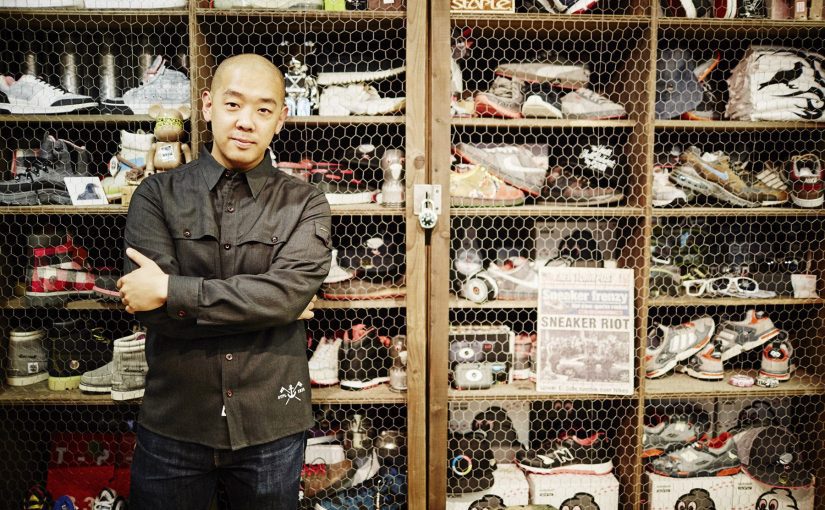
5/12/15
46: Jeff Staple – How to Create a Street Culture Brand
infuse your vision with a fresh breath of creativity and vitality
BOOK A BRAND PHOTOSHOOT
GET THE DETAILS
GET THE DETAILS
infuse your vision with a fresh breath of creativity and vitality
PODCAST
BRAND INTELLIGENCE
CREATIVE INTELLIGENCE
LIFE INTELLIGENCE

masterfully aligning perception and reality through personal branding
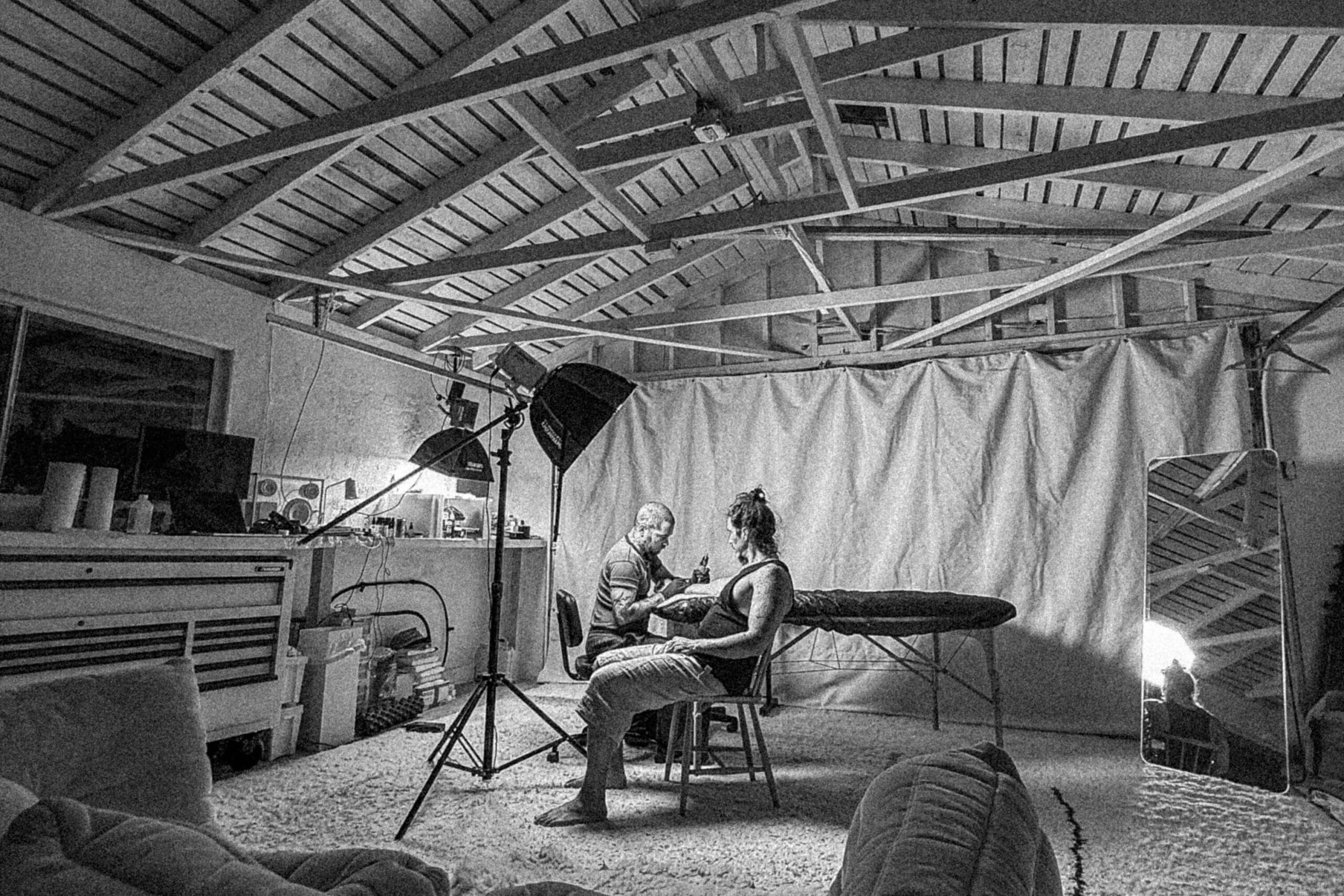
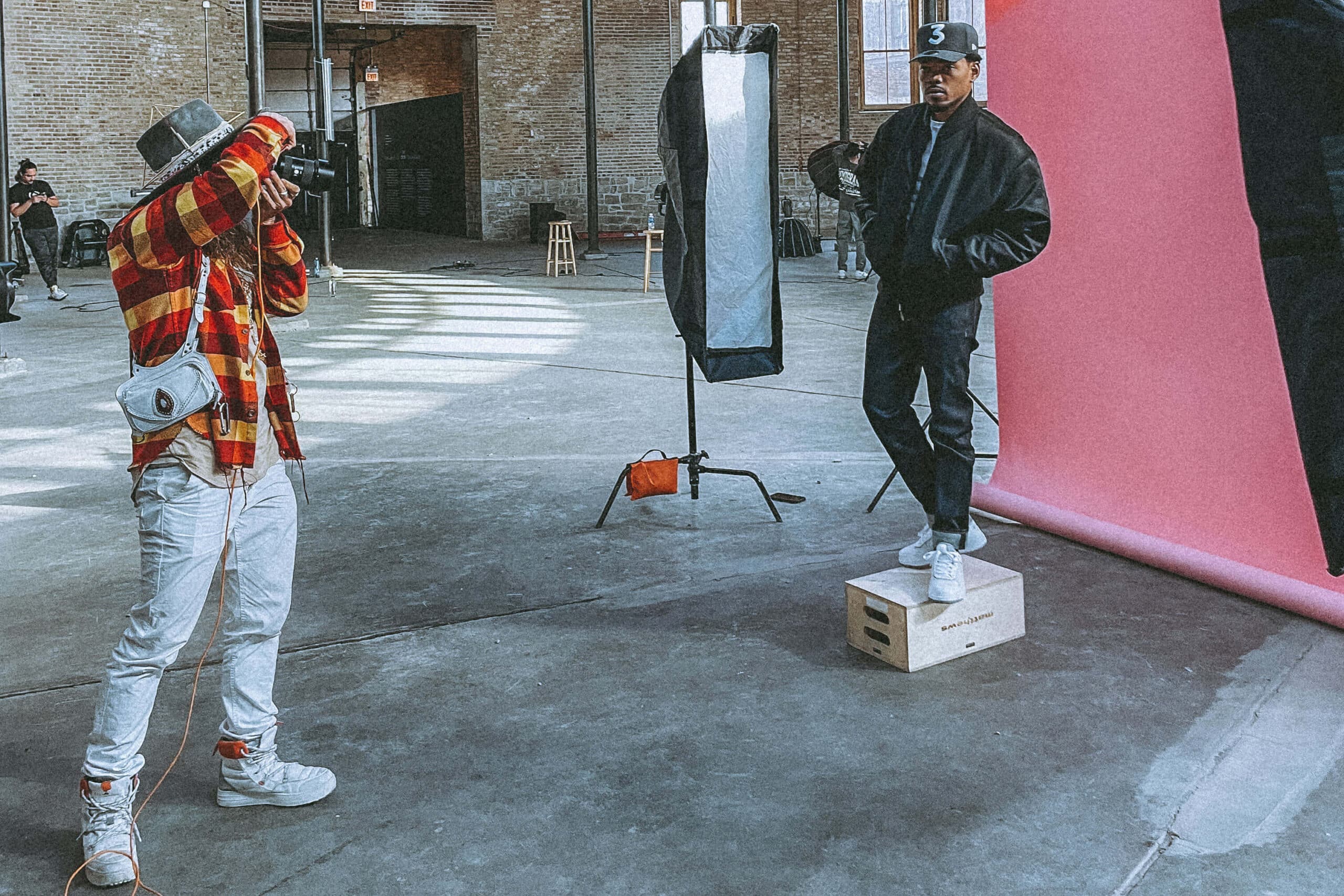

masterfully aligning perception and reality through personal branding

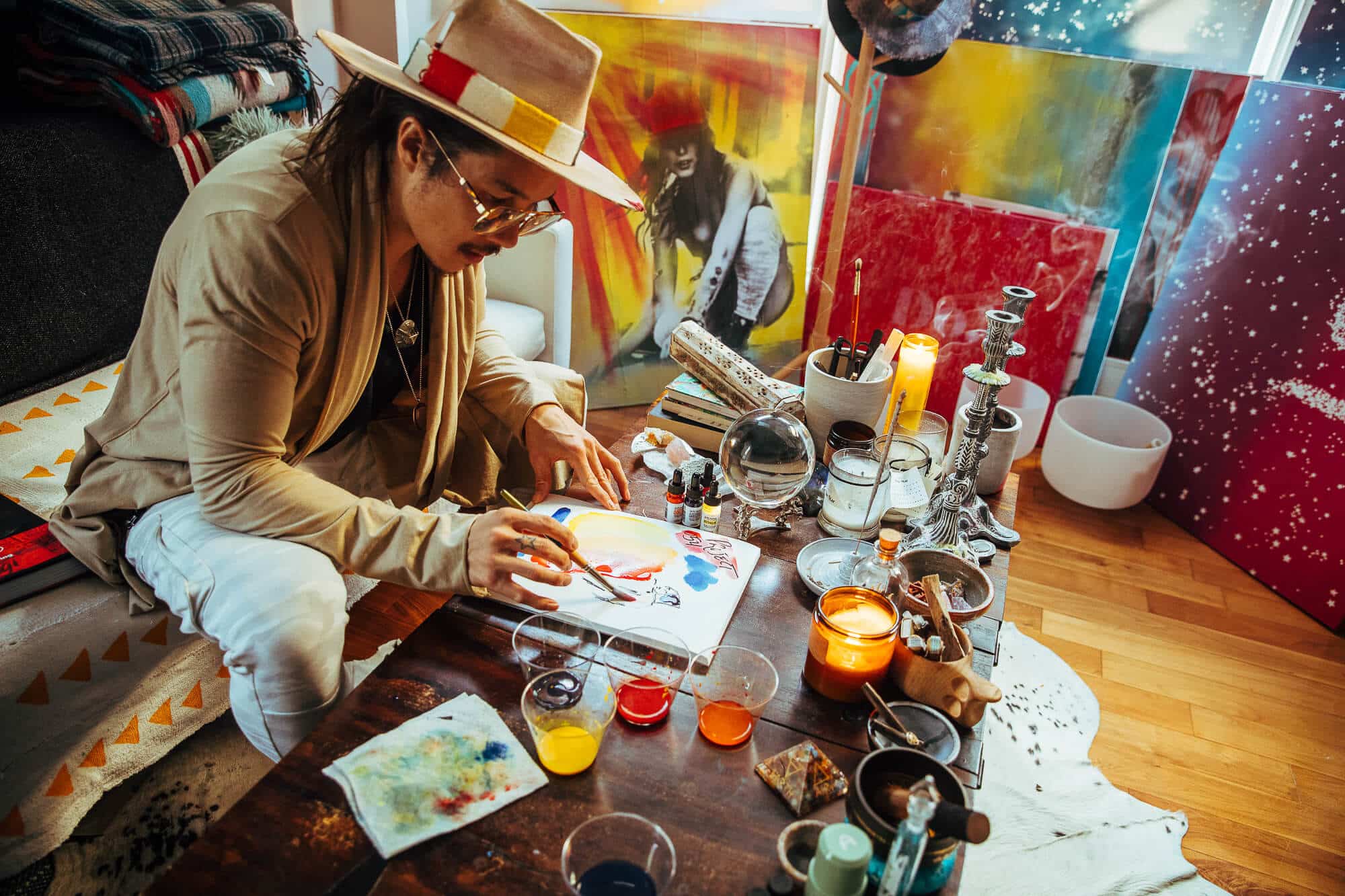
[smart_track_player url=”https://soundcloud.com/nickonken/46-jeff-staple-on-taking-a-risk-and-starting-your-own-business” title=”How to Create a Street Culture Brand” artist=”Jeff Staple” image=”https://nionlife.com/wp-content/uploads/2015/05/46_JeffStaple_NIONradio_02.jpg” color=”#de4b9b” ]
“In order to live your dream, there’s a lot of sacrifice that has to be made.”
– Jeff Staple
Street culture has been around for almost 20 years, but it’s still evolving and growing. A combination of hip-hop, punk rock, and skate culture, the discipline is a perfect amalgamation of creative, independent lifestyles.
No one knows this better than Jeff Staple, the founder of Staple Pigeon, Staple Design, and Reed Space. Jeff is a front runner in New York City street culture, and today, I’ve got him on ONKEN RADIO to share his story with you all.
In this week’s episode, I talked with Jeff about how he went against the grain and risked disappointing his family to start his businesses. Jeff is a brutally smart businessman with an adventurous spirit, and that comes across in his wise words about work and life.
This is an episode you’re not going to want to miss, and who knows — it might inspire you to quit your day job. Let’s dive in.
Who Is Jeff Staple?
Jeff Staple is a creative visionary with work encompassing graphic design, street culture, fashion design, footwear design, and brand marketing. If you know anything about New York street culture, then you know that his brand, Staple Pigeon, is one of the original brands in streetwear.
In 1997, Jeff founded Staple Pigeon, the NY-based pioneering streetwear brand with the now-infamous “Pigeon” logo. He also founded the experiential lifestyle boutique, REED SPACE, which is located in the lower east side of Manhattan, in 2002. In addition to his own projects, Jeff has worked on creative projects from startup brands to Fortune 500 companies.
Jeff is also the host of HYPEBEAST’s popular podcast The Business of HYPE, and is one of the most prominent teachers on Skillshare. He is also a frequent moderator, lecturer, and keynote speaker at industry panels & conferences.
Despite his massive success in the art world, Jeff’s future didn’t always look so creative. Growing up in a strict Asian household, Jeff struggled with his parent’s expectations. While they wanted him to pursue the medical field, law, or finances, Jeff wanted to pursue the arts. In this interview, we talk about that struggle, what success really means, how his near-death experience changed his life, and what street culture is really about.
Jeff is an extremely hardworking creative, and I have massive respect for the person he is and his craft. I’m so excited to bring this interview to you, so let’s get started!
Pursuing Your Passion Despite Other’s Expectations
Jeff was born to Chinese immigrant parents who lived in New Jersey, just 45 minutes from New York City. From a young age, he had an obsession with the NYC energy, and always saw himself going to college at New York University:
“I just was infatuated with the energy since I was really, really young … [I] was just trying to get into as much trouble as possible in the streets of New York. … [In] middle school, I told my mom, ‘I’m going to New York University.’ [And she was like,] ‘There’s no way [you’re] going to a New York City-based school.”
– Jeff Staple
I have a lot of Asian friends with immigrant parents, and in many of those cases, there’s a struggle between the job the parents think is best for their child and what the child desires to become. I asked Jeff to share a little bit about what this struggle was like and what it taught him:
“I hate to sound like a pessimist, but in reality, you’re really not going to make them understand. … They didn’t have friends who [were] artists or designers, [and] there was no concept of making a living from being creative or following your dreams. … So trying to get them to understand that [was] very difficult. And eventually, you just have to decide to make a break.”
– Jeff Staple
After years of trying to make his parents understand, Jeff realized that he was hitting a wall and that it was time to “make a break” for it. When he decided to pursue art school, his parents assumed it was just his way to slack off and not do anything serious with his life. Jeff’s motives couldn’t be more different:
“I found art school way harder [than my previous education]. [I tried] to convince my parents of that — like, this is not a cop-out or an excuse to goof off. It’s really me pursuing my dreams. It was hard, and there was actually a lot of the time where we weren’t really talking … and there was no support financially from them either.”
– Jeff Staple
Do you find yourself in a similar situation? Maybe you’re a young artist, and your parents struggle to understand your creative drive. Or perhaps it’s not your parents you’re worried about, but your friends. What would they think about you leaving your 9-to-5 job for something as insecure as an art career? If you’re struggling under the pressure of other people’s expectations, Jeff has some advice for you:
“I’m not telling people to have an estranged relationship with their parents, but I do think that you have to be able to [make sacrifices] in order to live a life where you’re living your dream. … I’m a firm believer in the fact that you cannot make yourself happy … by trying to make other people happy. … If you yourself aren’t first happy, I believe that like you scientifically cannot make others happy.”
– Jeff Staple
Are you trying to make other people happy before yourself? Jeff said this is like trying to put your kid’s oxygen mask on before putting on your own. For Jeff, this meant pursuing art school, and it also meant dropping out of art school years later. His parents didn’t approve of either decision, but he stayed true to himself. And look where he is now.
Why Pursuing Your Passion Requires Sacrifice
After dropping out of NYU to start school at Parsons and then dropping out of Parsons, Jeff realized the pathway to his artistic career would be even less conventional than he had thought.
“So I’m a double dropout. Four years of school with no degree to show for it, and [I dropped] out of Parsons so that I could pursue a potential job in designing my own streetwear line — not going to go over real with [with the parents], not to mention that … there was no streetwear industry back then.”
– Jeff Staple
In the 1990s, there were people involved in the street art world, but like Jeff said, there wasn’t really an industry. Luckily for Jeff, he knew many of these people on a first-name basis. I asked Jeff what inspired him to quit school and go down the untraditional path (as if art isn’t untraditional enough), and this is what he had to say:
“I think one of the things for me when I started the brand and really went full force into it was the fact that it wasn’t a decision making process. There was no possibility of not doing it, you know? So when people say [to me], ‘When did you decide that you were going to give up everything and do STAPLE,’ that’s kind of like [saying,] ‘When did you decide to inhale oxygen and blink?’… I just had to do it. There was no possibility of me living a life where I wasn’t doing something that I love to do.”
– Jeff Staple
Jeff’s passion drove his purpose, and it became clear to him that STAPLE was something he had to do. It wasn’t an option – it was a duty to himself to create the brand.
Maybe you relate to this – you have a vision for yourself and your creative career that you’ve been holding on to. You think you’re meant to do it. So, what’s keeping you from that? If you find yourself stuck in resistance, here’s Jeff’s advice:
“Let’s say that you have an idea that you want to do X, and for the past year, you’ve been weighing the pros and the cons of whether you want to do X. I believe very likely that doing X is not meant for you. [And] that’s not to say that it won’t work out. If you decide after that year of processing pros and cons, I’m really going to jump in and do X, I’m saying you could be successful at it. But the thing that you really, really, really should be doing, you won’t take the year to decide … you’re just going to do it.”
When you find what you’re truly passionate about, pursuing that dream isn’t going to be like pulling teeth. Sure, you might ruffle some feathers — or, like Jeff, you may not finish your education — but if it’s something you’re meant to do, all those things don’t matter. Passion takes sacrifice, and if you’re not willing to sacrifice anything, then you’re not going to make it.
What Success Means for Jeff Staple
Jeff Staple is obviously a man who’s achieved an extraordinary amount of success. He’s founded three companies and is continually making an impact in the world of street culture. For someone so successful, I wanted to know what success meant to him on a personal level:
“Success is simply just doing something every day that makes you happy. … I think a lot of people equate success to financial success and monetary goals [are] definitely great. … But I think the first thing has to be happiness, you know? … You need to be happy to even be able to get the means of getting money.”
Jeff is one of the most hardworking people I know, and I really believe that if he didn’t love what he was doing, there would be no way he could create and accomplish all of the things he does. He knows that he’s pursuing his purpose, and this alone gives him the fuel to manage three companies, create new designs, and speak at events.
In fact, when he does speak at events for companies, he shares his drive with the audience, and it’s evident that his passion fuels his work ethic. He always has to give a disclaimer to the company before he books the event:
“Whenever a corporation asks me to do a talk at their company, I give them a warning. I say, ‘Okay, I’ll do a talk at your company, but I have to let you know that every time I do a talk at a company, key people leave the company the next week, every single time.’ And without fail, I’ll do a talk at an agency or corporation, and then I’ll get an email from four people: ‘I just want to say your talk was really amazing, and I’ve decided to quit my job and resigned since your talk.'”
– Jeff Staple
Would you be one of these people? Do you have one foot out the door at your current job? Maybe you really are unhappy, but you can’t seem to build up the courage to quit. Often, our ego gets in the way and convinces us that we’ll fail or that we’ll disappoint the people around us, so we stay still.
Don’t stay still. Take that leap, and enjoy the freefall. It’s exhilarating.
What Jeff Staple Learned from His Near-Death Experience in the Andes
And speaking of falling, Jeff shared a near-death experience in this interview that changed his life. He recommends that if you get the chance, you should sign up for at least one — “Just don’t go too far with it and end up dying.” Jeff’s near death experience put everything — good and bad — into perspective.
It happened on a snowboarding trip in the Andes mountains. He had gotten separated from the crew during a whiteout and was lost in the Andes. The elevation was 19,500 ft, and he was lost for seven hours.
“And in that seven hours, I knew that there was a clock. I knew the sun was setting, and once that sun hit below the mountain, it was done for me. … I was hallucinating, and I was trying to fight off hallucinations … trying to keep [my] mind focused on the task at hand, which is ‘Survive one more minute.'”
– Jeff Staple
30 minutes before sunset, an expedition team found him, and he was rescued. When he got back home and back to work, he said it was surreal. Everyone around him was stressed, and his first reaction was anger. Why were people freaking out about such small things?
“Yes, I understand your work is important. And we have to collaborate and do shit together. I understand that, but I will never forget, in the back of my head, me on a mountain for seven hours … it always comes back to that when shit starts to hit the fan, it’s like, wait a second. I’m getting stressed out. But this is nothing compared to the stress I had.”
– Jeff Staple
This is such a good reminder — especially if you find yourself constantly stressed out with the small things. Jeff works in a high-stress environment, where there are constant deadlines, phone calls, and deals being made. But through it all, he reminds himself of those seven hours lost in the Andes, and it puts everything in perspective.
Be a Creative Alchemist with Jeff Staple
Alchemy is defined as the process of taking something ordinary and turning it into something extraordinary, sometimes in a way that cannot be explained.
With that being said, I define Creative Alchemy as using the process of creativity to create a lens of which to perform alchemy. These principles not only apply to artists and creatives in their own creative processes, but to anyone who wants to create an extraordinary life in color for themselves. I’ve found that 80% of creating is alchemizing the thoughts, emotions, and other inner blocks that keep you from putting the pen to the paper. Navigating to the act of creation takes alchemical processes and Jeff Staple is fantastic at this.
This was such an incredible interview, and this post barely scratches the surface of everything we talked about. Before we end, I wanted to share Jeff’s vision behind street art and what he believes the discipline is all about:
“I think street culture and streetwear has a very negative connotation to it. … When you say streetwear, people have images in their head of either baggy pants or pants that are too tight, depending on where you live. … To me, [street art culture] is about … a new way of thinking that’s different from the traditional way. … like you’re breaking out on your own and doing it irrespective of the way things used to be done. So in other words, the prior rules don’t apply to you, right? So you’re doing something creative, and I think that, to me, is really what street culture is all about.”
– Jeff Staple
Definitely go out and check out Staple Design and Staple Pigeon to see the very best of Jeff’s groundbreaking designs and collaborations. You can also connect with Jeff on Instagram @jeffstaple.
To all you creative entrepreneurs out there — don’t stop grinding, and don’t be afraid to make sacrifices for your passion. Keep your struggles in perspective, and take the leap, even when it’s terrifying. Jeff Staple is proof that you don’t need to follow a conventional path to be successful — you only need to follow your passion.
Thanks so much for joining me today! I hope you all enjoyed this episode. If you did, please leave me a good review over on Apple Podcasts. And, if you’re so inclined, screenshot the episode and post it to Instagram. And don’t forget to tag Jeff, @jeffstaple, and me, @nickonken! We’d love to hear how this episode inspired you.
Until next time —
Nick Onken
“I believe that you scientifically, metaphysically cannot make others happy if you yourself are not happy.”
– Jeff Staple
Some things we learn in this podcast:
- How his traditional Chinese family affected his path [3:40]
- Why New York is an attractive city for creatives [4:15]
- How journalism was a way for him to work while also writing creatively [6:00]
- How he discovered graphic design [8:15]
- How his family felt about his transition from journalism to graphic design [9:35]
- The difficulty of art school [10:50]
- The importance of making yourself happy first [12:40]
- The necessity of creating his own streetwear brand [15:25]
- Why you have to be willing to sacrifice anything [16:55]
- How he expanded his clothing brand into a creative agency [18:30]
- How to play a management role in three different yet related companies [20:55]
- The staying power of street culture [23:40]
- How to take the wake up test and the going home test [26:15]
- Jeff’s definition of success [27:05]
- The importance of checking in with yourself to see if you’re content [28:40]
- Why you should take risks to live the life you want [31:25]
- How to ask yourself what is holding you back [33:15]
- Why taking care of your health is a mark of success [33:45]
- What you sacrifice to build your own business [34:05]
- Why you should operate as though everything you have can go away at any moment [37:10]
- How to avoid needing to relieve your stress [40:55]
- The value of near-death experiences [41:25]
- Changing the negative connotations of street culture [52:20]
- Street culture as an amalgamation of hip hop, punk rock and skate [55:00]
- Why he wants to inspire his employees [59:00]
- Why competition is a good thing [1:00:40]
Links mentioned:
- Check out Parsons School of Design, where Jeff went to school
- Jeff’s clothing brand, Staple Pigeon
- And his creative agency, Staple Design
- Check out Reed Space’s site
- Music Credit: Howls by KRNE

5/12/15
46: Jeff Staple – How to Create a Street Culture Brand
infuse your vision with a fresh breath of creativity and vitality
BOOK A BRAND PHOTOSHOOT
masterfully aligning perception and reality through personal branding
GET THE DETAILS
Hey! I'm Nick.
PHOTOGRAPHER
BRAND ALCHEMIST
TEACHER
At vero eos et accusamus et iusto odio dignissimos ducimus qui blanditiis praesentium voluptatum deleniti atque corrupti quos dolores et quas molestias excepturi sint occaecati cupiditate non provident, similique sunt in culpa qui officia deserunt mollitia.
GET THE DETAILS
infuse your vision with a fresh breath of creativity and vitality
LET'S CONSPIRE & CREATE
CULTIVATING YOUR VISUAL UNIQUENESS AND STREAMLINING YOUR BRAND'S EVOLUTION
NEXT post
PREVIOUS post
read the latest

TL;DR – What You’ll Learn in This Post You Are the Brand If you’re still hiding behind your offer… If you’re still using a cropped wedding photo for your headshot… If you’re still telling yourself you need to “figure it all out first”… Let this be your permission slip: You are the face of your […]

TLDR | What You’ll Learn in This Post This Wasn’t Just a Tattoo I’ve wanted a tattoo from Balazs for years. Not because he’s popular, but because I knew this guy was channeling something real. When the time finally aligned, I didn’t just walk into a session. I stepped into a portal. The Intention: A […]

If you’re an entrepreneur, your personal brand isn’t just a logo — it’s your face, your energy, and the story you’re telling in every scroll. So when it comes to choosing a personal brand photographer, you don’t need someone who just “takes nice pictures.” You need someone who knows how to translate your identity into […]

TL;DR – What You’ll Learn in This Post Your Location Isn’t Background — It’s Identity Where you shoot isn’t just about what looks cool. It’s about resonance. It’s about embodiment. It’s about visually designing a space that holds your energy. “Your brand visuals don’t just show who you are — they show the world you […]

A personal brand is not your logo. It’s not your colors. It’s not just your website. Your personal brand is the perception people have of you when you’re not in the room — shaped by your presence, your visuals, your voice, and how consistently you embody your values. It’s who you are and who you’re […]

TL;DR – What You’ll Learn in This Post Your Brand Isn’t a Feed — It’s a Frequency We’ve all seen it: the influencer with polished photos but no soul. The brand that feels like a mask. That’s not personal branding — that’s performance. A real personal brand? It’s how you live. It’s what you do […]

A Brand Isn’t Just a Logo — It’s a Mirror Your personal brand isn’t a website, a color palette, or a polished grid. It’s an evolving expression of who you are — and who you’re becoming. More than that, it’s a container. A space that calls you to rise. To embody your message. To stay […]
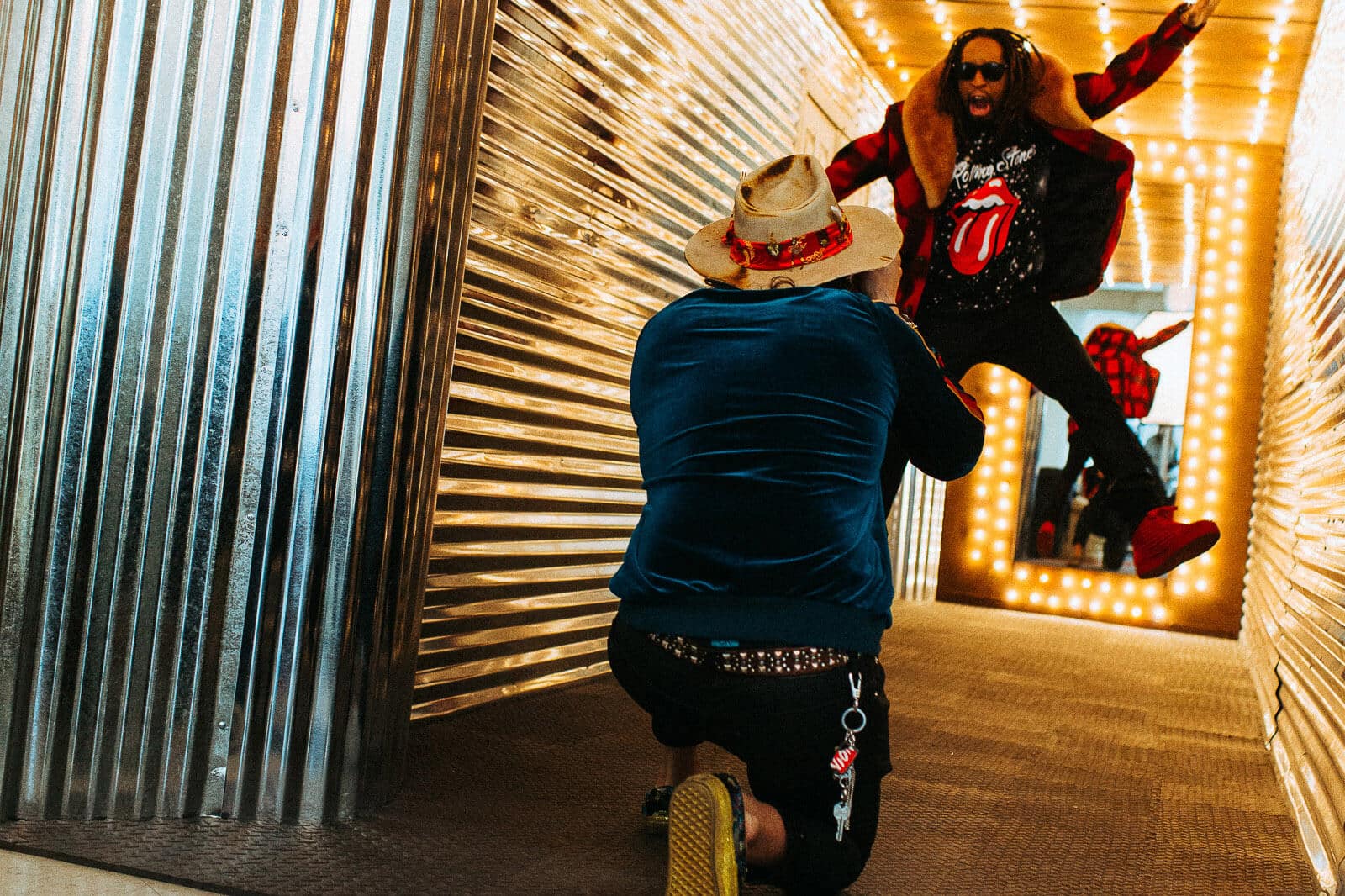
Let’s put it this way: If you want stiff headshots in a gray suit against a beige wall — probably not. If you want a photoshoot that feels like an editorial spread, emotional breakthrough, and creative awakening all in one — then yes. Nick Onken is very good at what he does. What Makes Nick […]

Most First-Time Brand Shoots Miss the Mark — Here’s Why If you’re preparing for your first brand photoshoot, you’re likely focused on the obvious: outfits, lighting, maybe even the perfect smile. But what actually makes a photoshoot land is much deeper — and most people don’t know what to look for. And unfortunately, that’s why most first-time […]

The Problem With Traditional Brand Photograph Most brand photos are surface-level. They might be polished. Perfectly lit. Technically solid. But they lack soul. They don’t make you feel the person. They don’t communicate energy, depth, or identity. They look good — but they don’t resonate. And that’s a problem if you’re a thought leader, coach, speaker, author, or […]

If you’re searching for the best personal brand photographer in New York, one name rises to the top: Nick Onken. Blending editorial sophistication with emotional storytelling, Nick’s work goes far beyond headshots. His Elevated Realism™ approach captures your highest self — magnetic, polished, and unmistakably you. 📍 A Photographer Who Knows NYC Intimately Nick spent 15 […]

One of the biggest mistakes entrepreneurs make is building their website, offers, or marketing before they’ve ever clarified their brand identity. They hire web designers before they’ve defined their vibe. They write sales pages without knowing the feeling their brand is meant to transmit. But everything — your website, your photos, your content, your brand world — should stem […]

For most people, a photoshoot is about looking good. For Nicky Clinch, it became a mirror for transformation. Nicky is a master maturation coach, author of Surrender, and co-leader of the Emanate Mastermind. When she came to me, her brand was successful—multiple seven figures, sold-out programs, a global community—but something wasn’t resonating. She had reached a plateau. […]
About the Blogger
I was born in a low middle class conservative religious family in the suburbs of Seattle. Art was and always has been my passion, and more than that a way of life. Starting as a graphic designer, I taught myself photography, built a commercial/editorial business shooting for the worlds biggest brands like Nike, Coca-Cola, Adidas and more. I've also had the opportunity to photograph the world's biggest celebrities like Justin Bieber, Usher, Jessica Alba and more. I've curated a lifestyle around creativity and have learned a lot along the way which I get to share here.
I was born in a low middle class conservative religious family in the suburbs of Seattle. Art was and always has been my passion, and more than that a way of life. Starting as a graphic designer, I taught myself photography, built a commercial/editorial business shooting for the worlds biggest brands like Nike, Coca-Cola, Adidas and more. I've also had the opportunity to photograph the world's biggest celebrities like Justin Bieber, Usher, Jessica Alba and more. I've curated a lifestyle around creativity and have learned a lot along the way which I get to share here.